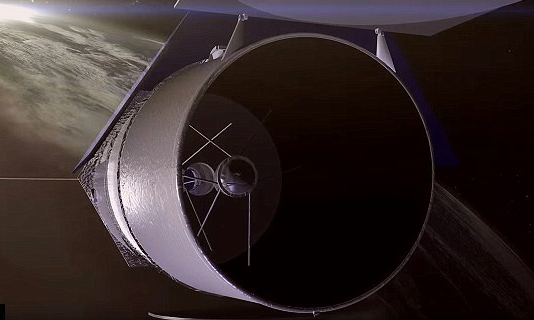Dubbed WFIRST (Wide Field Infrared Survey Telescope), the probe will investigate dark energy, exoplanets and galaxy formation. It is due to fly in 2024 and will help astronomers survey the cosmos using its huge field of view. The survey will net thousands of new exoplanets similar in size and distance from their star as those in our own solar system, complementing the work started by NASA’s Kepler mission.
Using multiple techniques, astronomers also will use WFIRST to track how dark energy and dark matter have affected the evolution of our universe.
NASA is about to begin work on a new telescope 100 times bigger than Hubble.





